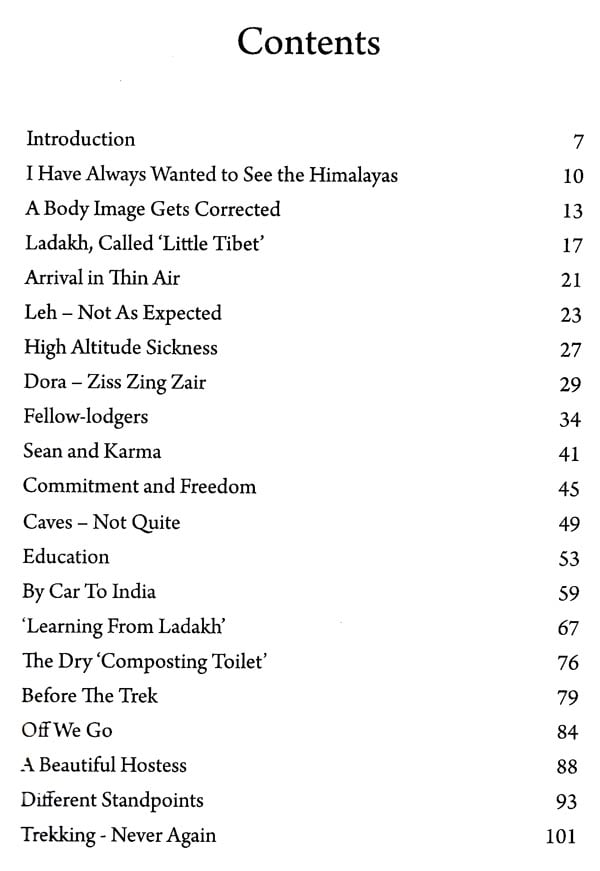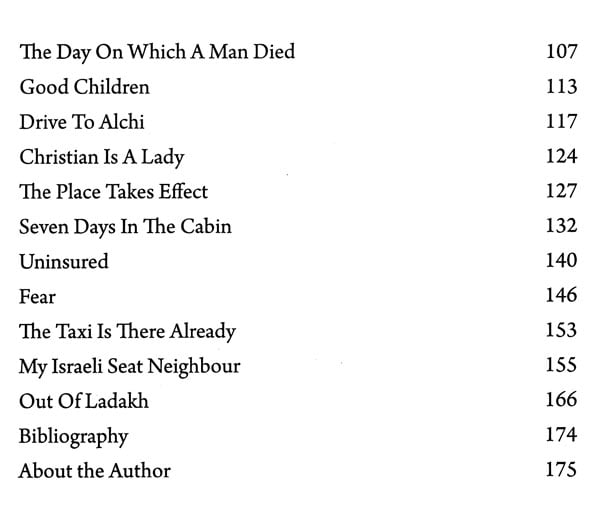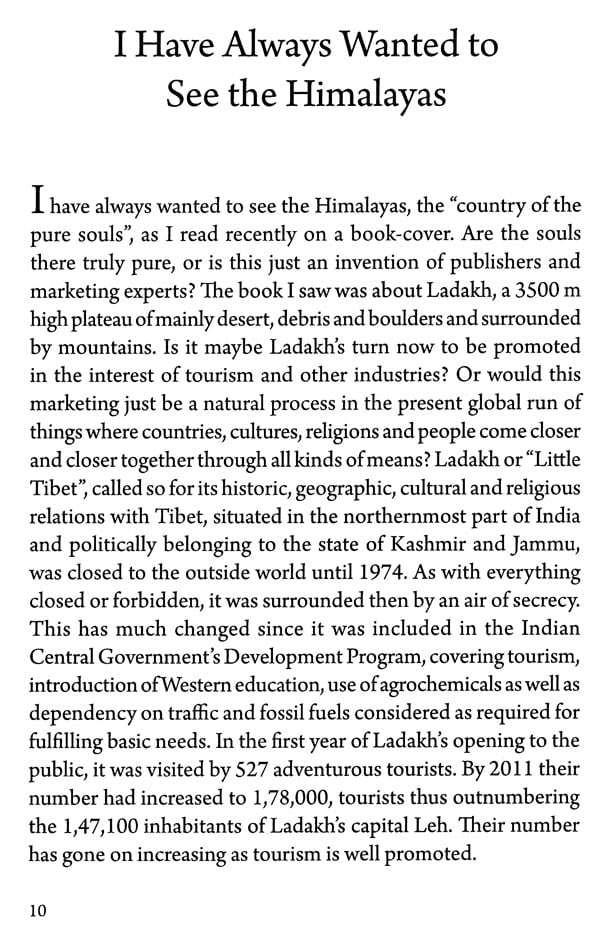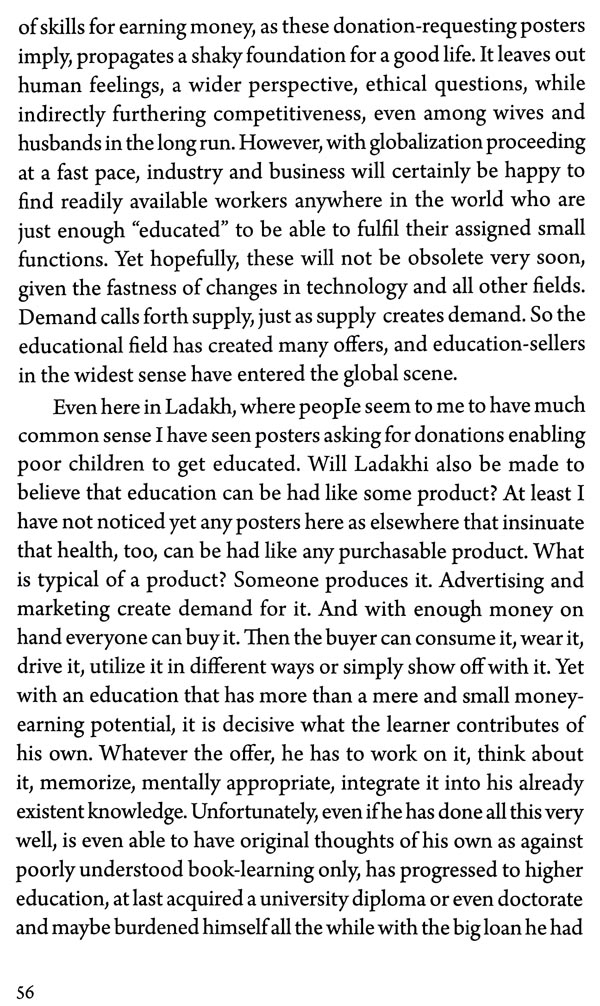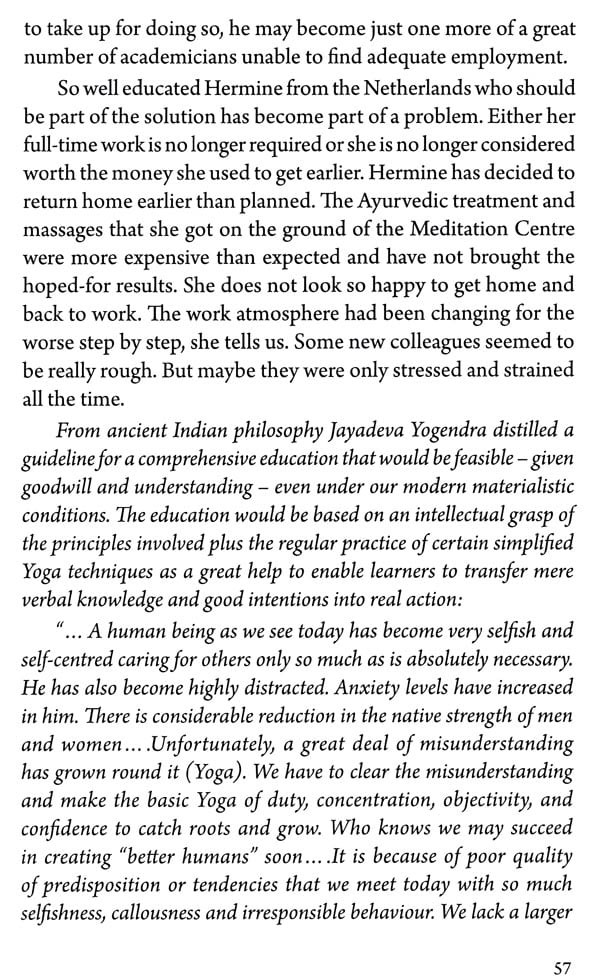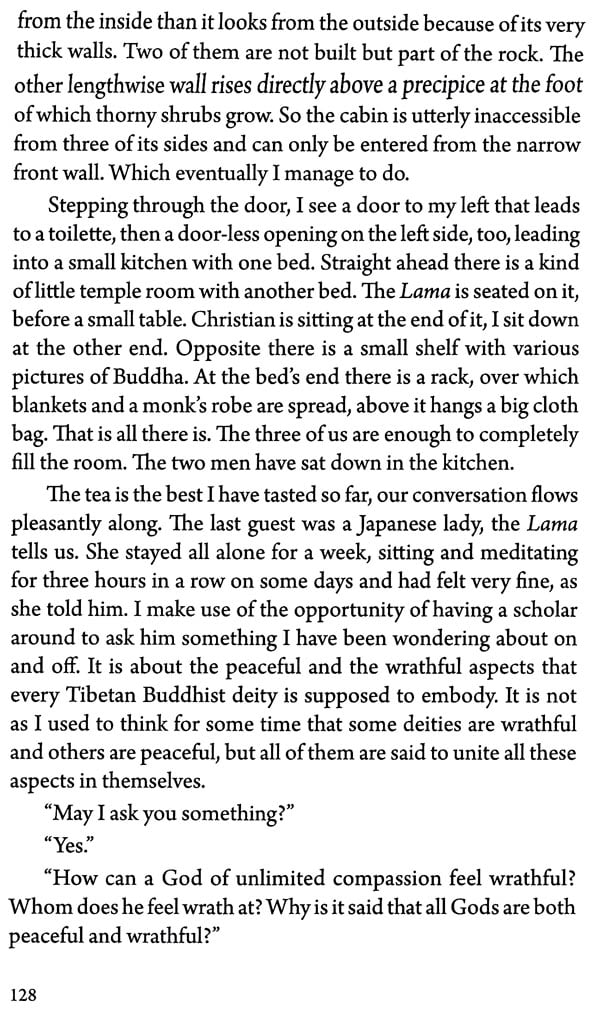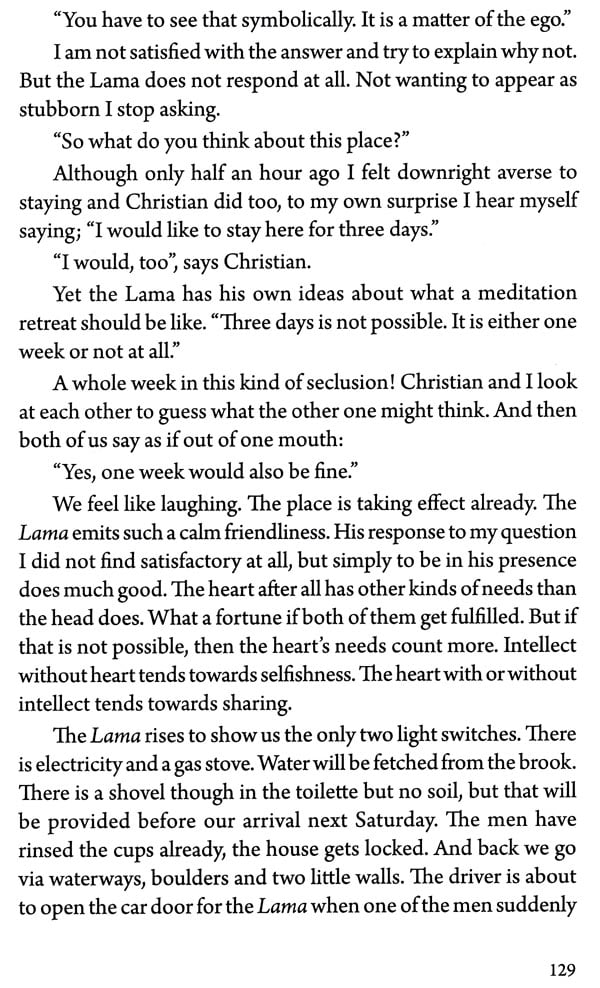
Seven Weeks in Little Tibet (Philosophic Travelling in Ladakh)
Book Specification
| Item Code: | NAR477 |
| Author: | Hella Naura |
| Publisher: | Zen Publications |
| Language: | English |
| Edition: | 2019 |
| ISBN: | 9789387242449 |
| Pages: | 175 |
| Cover: | PAPERBACK |
| Other Details | 8.50 X 6.00 inch |
| Weight | 200 gm |
Book Description
A German lady, a veteran Yoga practitioner, travels to Ladakh, also known as 'Little Tibet'. There she dives as much into life in its bustling capital Leh as into moonlike landscapes and Buddhist locales. She spends a week in a solitary meditation cabin, goes on a trek and meets not just Ladakhh is but also interesting fellow travelers from all over the globe.
So is this a travelogue? Or are these musings in a journal? Yes, but also much more. Charmed by her chatty narration, spiced with irony and humour, you are gently led to contemplations on life and living, changes wrought by globalization, man-woman relationships, cultural differences, loss of identities, fear as an inherent part of the human psyche and the burgeoning objects of enjoyment versus the diminish-ing capacity to enjoy.
Before you know it, you realise that Hella Naura's deep reflections have awakened in you a need to integrate some spiritual viewpoints into your busy modern life. Why? Because her experiences and many joys, in spite of several difficulties, are a proof that a 'spiritual' outlook is an effective antidote to the crafty seduction by material and sensual gratifications. And, as she notes, even parts of Ladakhi society -formerly happy, prosperous and woven tightly together with warmth and intimacy - seem to be succumbing to its lures.
Hella Naura, born 1940 in Germany, studied painting and earned her living as a mostly freelance translator, dubbing author and adaptor of foreign-language programmes by other methods for German TV. She temporarily worked or studied in New York, Marseille, London and Mumbai, then got deeply interested in Yoga as learnt from Dr. Jayadeva Yogendra of The Yoga Institute from 1975 onwards. She has authored many articles on Yoga learning and essays on global changes under psychological, ethical and consciousness-related perspectives.
Using one of the catchwords of our times this book could be called "holistic". I am pointing this out because while writing it I half foresaw that it would probably be rejected by German publishers. One of their objections might possibly be that it contained too great a mix-up of too many topics. But, then, is not life an often confusing, ever changing mix-up of many contributing factors hard to identify and thus to be dealt with effectively? As a rule, only the wise or even enlightened ones are able to recognize the patterns underlying the ever-ongoing play of phenomena or the red threads running through the lives of individuals.
So this book is about travel impressions, incidental talks with persons of several nationalities, globalization, criticism of some modern trends, reflections of a psychological and philosophical nature, headaches, self-observation, meditation and more. But is it not of bad taste to mention peeing in a book in which philosophers are quoted? Taking a "holistic" view at man, the answer would be, no, it is not. Man lives at different levels at all times. Thus even the noblest philosopher has to pee, just as the most common pee-r might occasionally become philosophical and wonder about the meaning of life, the dividing line between good and evil, the yardstick for right conduct in a given situation or even the most important question of all: Who am I? True, but still an objection might be that a dry composting toilet, a Ladakhi specialty, is considered here as worthy of reflection as fear as a universal part of the human psyche is? But is it not? Everything is interrelated, and this interrelatedness spans God, Gods and Heaven above just as well as most basic physical necessities below. Even the ground-breaking great Austrian psychoanalyst Sigmund Freud or representatives of world literature did not find it below their dignity to reflect over calls of nature. Thus the Roman poet Ovid of the first century B.C. advised a spurned and love-sick friend of his to imagine the adored but unreachable woman again and again in the act of evacuating herself if nothing else helped to cure him of his infatuation.
Indian mythology speaks of "God Indra's Net", which I imagine to symbolize some part of the total cosmic network. The modern worldwide web through IT could be seen as a most, most tiny physical manifestation of a greater web in which everything can be and actually is ultimately related to everything else. Subtler mental or metaphysical interrelations I see as manifesting through the Zeitgeist, while the highest, spiritual interrelations I picture for myself as working through a Higher Process based on a Highest Intelligence. And all of this would very, very ultimately and in unthinkable, most wonderful and awesome ways have its origin in God, this intellectually forever unfathomable one without a Second, - as Indian writings often express it. Different religions ascribe different forms to this Greatest One and try to approach IT or HIM or HER in different ways. Unfortunately, in recent times these differences have given rise to quarrel, hatred and even violence between some followers of the great religions of the world. Also religion, science, politics, feelings of lack of an identity; and cultural imperialism seem to be getting often mixed up. This has led to sad and dangerous enmities in many parts of the world.
As against these strives at ideological, national and political levels, people of most different backgrounds might not have any problems in getting along with each other well when they meet at individual levels. Backpack travelling for me has provided many pleasant and easy opportunities for such meetings, which can lessen prejudices and increase appreciation of the otherness of others. Certainly this otherness cannot be understood and looked through in a day, but just enjoying and trying to study and understand it might also be a tiny contribution towards more amicability and consequently less conflict and fear in the world. Being in Ladakh, looking and hearing around and meeting different people gave rise to the following reflections which I am especially happy to present to Indian readers now.
